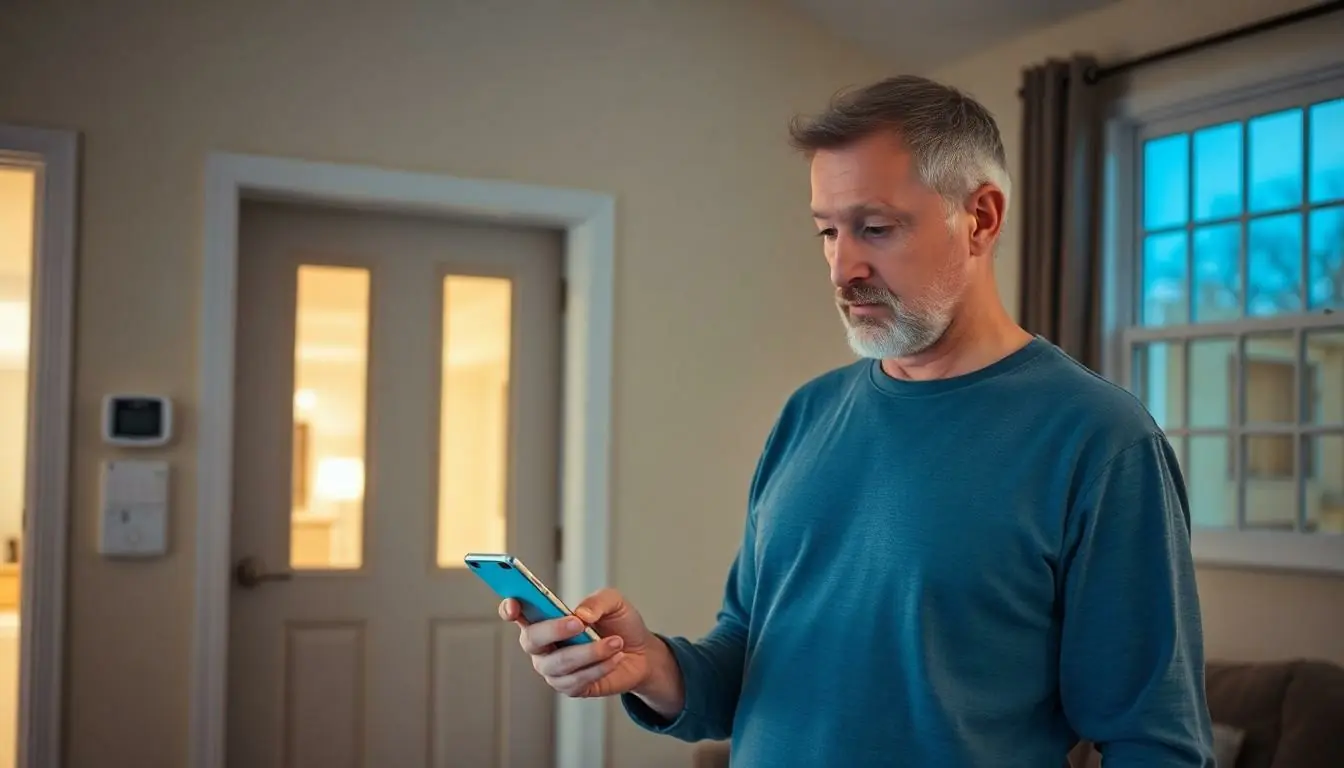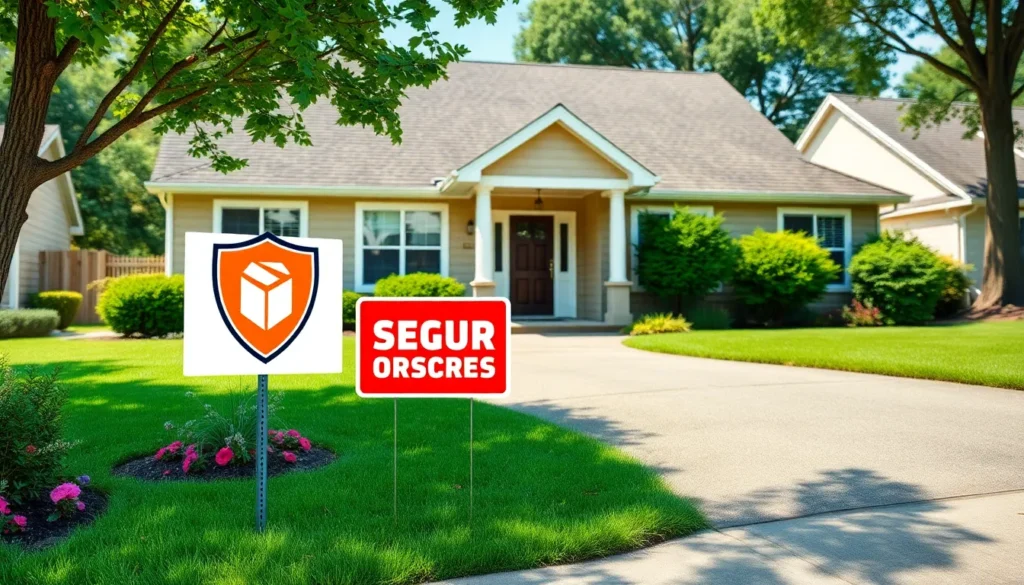In a world where home security systems promise to keep the bad guys out, what happens when they fail spectacularly? Picture this: you’ve invested in the latest gadgetry, only to discover that your security system is about as effective as a screen door on a submarine. Welcome to the wild world of safe home security lawsuits, where homeowners take a stand against companies that promised peace of mind but delivered panic instead.
These legal battles are more than just a courtroom drama; they’re a quest for accountability. Homeowners are fighting back, seeking justice and compensation for the false sense of security that left them vulnerable. If you think your home is safe, you might want to double-check that warranty—because when things go wrong, the stakes are higher than a cat stuck in a tree. Let’s dive into the ins and outs of this intriguing legal landscape.
Table of Contents
ToggleOverview of Safe Home Security Lawsuit
Homeowners face significant challenges when their security systems fail to deliver promised protection. Various lawsuits emerge as these individuals seek justice from companies that sold them ineffective products. Many express frustration over having invested in systems that did not meet expectations, leading to feelings of vulnerability. Such experiences highlight the broader implications within the industry, where accountability remains essential.
Legal cases often cite breach of contract and false advertising as key reasons for litigation. Homeowners assert that they relied on marketing claims regarding effectiveness, only to be let down by poor performance. The quest for compensation drives these lawsuits, with plaintiffs demanding not only refunds but also damages reflecting emotional distress and security breaches.
Statistics indicate a rising trend in litigation related to home security failures. In recent years, the number of lawsuits has increased significantly, reflecting broader consumer dissatisfaction. This pattern underscores a critical need for manufacturers to enhance product reliability and accurately convey capabilities.
Legal professionals specializing in consumer protection increasingly handle these cases. They navigate the complexities of proving liability, often relying on documentation and customer testimonies. As more homeowners unite in these legal battles, the potential for widespread reform within the home security industry becomes apparent.
Regulatory bodies may step in as cases accumulate, pushing businesses toward higher standards. Continued scrutiny from both the public and lawmakers can lead to stricter regulations that govern advertising practices. These developments could redefine industry norms, prioritizing consumer safety and trust.
Overall, the ongoing litigation surrounding home security systems emphasizes the critical intersection of consumer rights and corporate accountability.
Common Issues Leading to Lawsuits

Homeowners face several key issues that trigger lawsuits against home security companies. Understanding these grievances is crucial for recognizing the need for accountability in the industry.
Inadequate Security Measures
Inadequate security measures often result in significant breaches of trust. Many homeowners invest in systems marketed as state-of-the-art, only to discover vulnerabilities. Alarm systems may fail to detect intruders, malfunction during emergencies, or provide insufficient coverage. These shortcomings not only lead to property damage but also heighten emotional distress for affected individuals. Legal complaints frequently cite these failures as grounds for lawsuits. Data shows that compromised systems increase the likelihood of legal action, reflecting broader consumer dissatisfaction.
Breach of Contract
Breach of contract typically emerges when promises made during the sale of home security systems are not fulfilled. Companies often guarantee specific levels of protection or response times but fail to deliver on those commitments. Homeowners may experience delayed responses to alarms or inadequate monitoring services. Legal action frequently follows since buyers expect reliable performance based on contractual agreements. Courts often view these breaches seriously, offering homeowners a path to seek damages for their compromised security. This growing awareness of contractual obligations among consumers reinforces the demand for higher standards in the home security sector.
Impact on Homeowners
Homeowners face significant challenges when their security systems fail, leading to frustration and vulnerability amid legal battles.
Financial Consequences
Legal disputes can impose hefty financial burdens on homeowners. Expenses may include attorney fees, court costs, and potential settlements. Some homeowners seek compensation for the money invested in ineffective systems, expecting to recover these losses through litigation. Statistics show an increase in properties damaged due to inadequate security measures. Victims often claim financial losses linked to burglary or property damage caused by these failures. Families may find themselves struggling to afford repairs or replacements, heightening the urgency for accountability in the industry.
Emotional and Psychological Effects
The impact of security system failures extends beyond finances. Homeowners frequently experience heightened anxiety and stress when trusting a system that fails to protect them. Feelings of vulnerability can permeate daily life, making individuals feel unsafe in their own homes. Many report sleep disturbances and continuous worry about intrusions. Emotional distress claims increasingly populate lawsuits, reflecting the psychological toll of such failures. Loneliness and isolation can accompany these feelings, as homeowners grapple with the realization that their investment in safety did not yield the expected security.
Legal Considerations
Legal considerations play a crucial role in the ongoing lawsuits related to home security failures. Homeowners pursue justice and accountability through various legal avenues.
Understanding Liability
Liability focuses on the responsibility of companies for security system failures. Courts often examine breach of contract claims when customers allege that companies failed to meet promised security levels. Plaintiffs may also invoke false advertising if marketing claims do not align with actual product performance. Factors like the effectiveness of marketing materials and customer expectations become essential in proving liability. Furthermore, intentional negligence can surface in cases where companies ignore known issues with their systems. Legal precedents indicate that manufacturers might face also punitive damages if found willfully deceitful.
Navigating the Legal Process
Navigating the legal process can be daunting for homeowners pursuing claims against security firms. Step one involves gathering evidence, including contracts, communications, and documentation of system failures. Engaging legal counsel with expertise in consumer protection enhances the ability to build a strong case. Many homeowners file suit in small claims court for smaller disputes, while others escalate through higher courts for significant damages. Understanding the statutes of limitations is critical, as delays can lead to dismissed cases. Mediation and settlement negotiations offer alternative pathways, often sidestepping lengthy court battles. Homeowners should remain informed about their rights throughout the legal journey to ensure a comprehensive approach to their claims.
Notable Cases and Outcomes
Several lawsuits have emerged related to home security failures, signaling a growing trend in consumer dissatisfaction. In a notable case in California, a homeowner sued a security company after an alleged system malfunction allowed a break-in, resulting in substantial property loss. The court ruled in favor of the homeowner, awarding damages for emotional distress and property replacement costs.
Another significant case unfolded in Texas, where multiple homeowners filed a class-action lawsuit against a major manufacturer. They claimed the security systems falsely advertised features that proved ineffective during real-life situations. The outcome resulted in a settlement that included refunds and changes to advertising practices, prompting the company to improve product disclosures.
An Illinois couple faced financial burdens after their security system failed to notify them of an intruder. They pursued legal action citing breach of contract, arguing that the company did not fulfill its promise of reliable monitoring. The court found the company at fault, which led to compensation for both direct losses and emotional suffering.
Statistics show that home security-related lawsuits have increased by over 30% in the past three years. Legal experts point to this rise as evidence of a growing awareness among consumers regarding their rights. Most lawsuits include claims of false advertising and breach of contract as homeowners seek accountability for misleading promises.
Many cases also highlight the emotional toll experienced by plaintiffs. Increased anxiety and stress have become common claims, as individuals cope with the repercussions of investing in ineffective home security. These elements often influence jury decisions, as courts recognize the psychological impact of security failures on homeowners.
Industries are now responding to litigation by refining their practices. Regulatory bodies may take action to enforce stricter standards, leading to gradual reform in the home security sector. Awareness of these cases promotes necessary changes that may benefit consumers in the long term.
Homeowners are increasingly taking a stand against ineffective home security systems. The rise in lawsuits reflects a growing demand for accountability from manufacturers who’ve failed to deliver on their promises. As legal battles unfold the potential for industry reform becomes clearer.
With more consumers aware of their rights and the emotional toll of security failures, the landscape of home security is shifting. Legal professionals are stepping in to guide homeowners through complex claims, emphasizing the need for better standards. This trend not only highlights the importance of consumer protection but also signals a call for manufacturers to prioritize reliability and transparency in their products.


